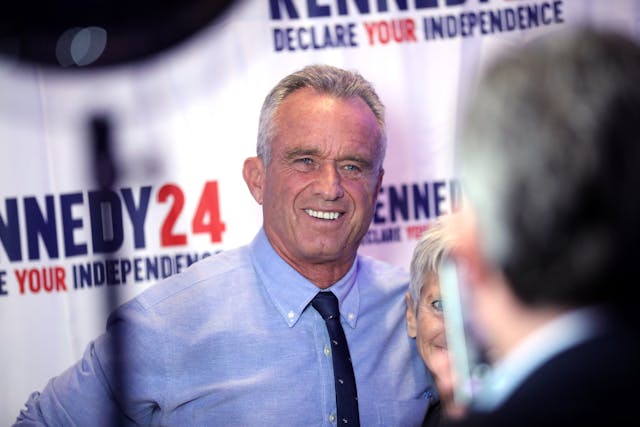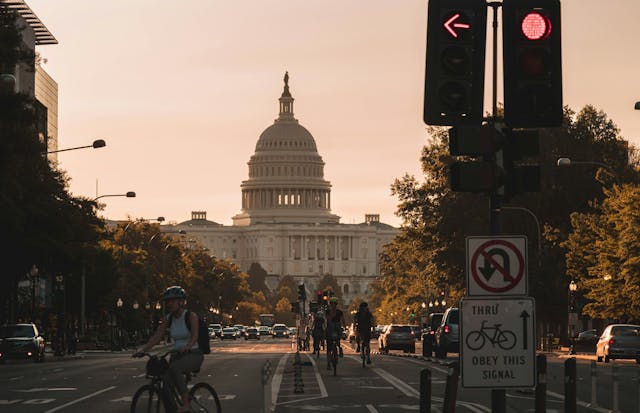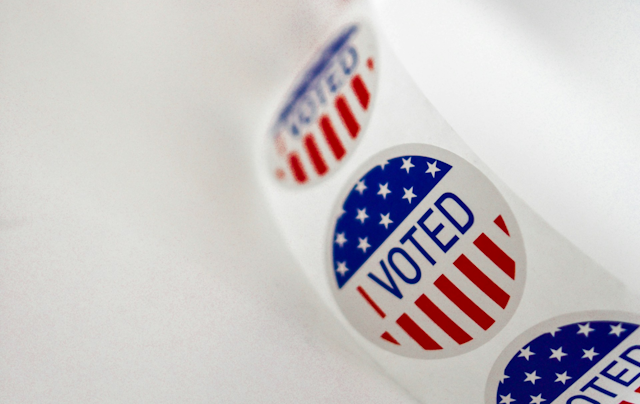Presidential Debates: New Rules for 2020?

To better understand how presidential debates really work, it might help to frame the operation in business terms.
As competitors begin positioning themselves for the 2020 presidential race, they may need to adapt to a change in the procedures. The path to the all-important televised presidential debates may be forcibly smoothed out by a US District Court Judge so that candidates outside one of the nation's two large franchise parties have better access to the microphone.
The election may seem far in the future, but American campaigns are getting longer, the all-important fight for high polling numbers starts early, and stock placed in those polling numbers lead to the debates.
A Lesson From 2016: Grab The Mic
Hillary Clinton declared her intent to run on April 12, 2015, and then hit the stump-speech-circuit for 19 months. It broke records. As late as October 2016, two-thirds of Americans, including more than 40% of Trump voters, essentially said, “She’s the one and that’s all there is to it.”
Until it’s not. Not when an anti-establishment Republican candidate grabs the mic in the primary debates, takes shots at 16 established Republican opponents, obliterates them, then walks away with the party’s nomination.
Months later, at the general election debates, with a microphone and his wits, Trump broke viewership records. That was thanks to politically-viable name recognition at a low price, courtesy of that grand ol' behemoth, the Republican Party.
“You have to know you have a viable path into the debates to even attempt to run for president,” says Peter Ackerman, a businessman who is involved in an ongoing lawsuit against the gatekeepers of the debates, the Commission on Presidential Debates.
"Let's say we were thinking of buying the Dallas Cowboys, but suddenly the Dallas Cowboys under no circumstances are allowed to play in the Super Bowl. What would that franchise be worth? Similarly, if you are a candidate who is independent and if you know that there's no way you could get into the fall debates your campaign is purposeless.” - Peter Ackerman
Choose Your Color, Choose Your Brand
There are two parties in this country capable of delivering a candidate to a televised debate stage with the polling numbers required to grant entrance. Red or Blue. Republican or Democrat.
Historically, Donald Trump flipped and flopped between parties and even declared himself politically independent. In 2000, he said that the debate access rules were ridiculous. Then, in 2015 Trump chose red. Smart.
Bernie Sanders, not historically a Democrat, chose blue. He told a participant, on air, at Chuck Todd's MSNBC town hall, that he did not run as an independent because “Chuck would not have me on his program if I did that.” True.
Ackerman wants the sellout option to be needless. He wants a candidates stock raised without a party. So he’s going through the courts.
Corporate America
If this were a public company, the Federal Election Commission would be the board of directors governing the CEO. In this case, it's the CPD which determines the debate entry requirements.
You must be an American over 35 years of age, and on the ballot in states that exceed 270 Electoral College votes so you can mathematically win. The offending rule is that you have to be at 15% or above in a poll that cannot occur except within several weeks of the election.
And the CPD chooses which polls to use.
American voters, as customers, are handed the product of those requirements: two candidates in the Republican and Democratic parties will debate.
How does any outside candidate scale up their operation to meet the requirements? As Ackerman points out, they don’t. They are forced to start big at the outset with a major party which is why voters get a succession of one Republican and one Democrat on the general election debate stage for generations.
Now, 66% want another voice in the debates. But wait, voters are also the shareholders in this case, yet they cannot sell off the stock and go elsewhere.
Call The Lawyers
Ackerman, along with the nonprofit group Level the Playing Field, the Green Party of the United States, and the Libertarian National Committee, filed a lawsuit alleging that the Federal Election Commission violated federal election laws requiring the Commission on Presidential Debates to remain nonpartisan and to apply “objective criteria” in determining who may participate in the presidential debates.
As it stands the CPD is made up of established Republicans and Democrats, many of whom are large donors to their respective parties.
In February 2017, US District Court Judge Tanya Chutkan held that the FEC had “acted arbitrarily and capriciously and contrary to law” in its assessment of the CPD’s nonpartisanship. It was the first time challengers to the rules of presidential debates were successful in court.
The FEC was ordered to give a thorough review of the structure and practices of the CPD. It went nowhere. Another complaint was filed demanding an explanation and/or a change to the rules. And while interested parties wait on a decision from the court, the 2020 presidential election cycle approaches.
What the 'Experts' Say
At the George Washington University’s 'Reimagining Disruption' Conference, Dr. Michael Cornfield, Research Director of the Global Center for Political Management, moderated the panel on presidential debates. The panel focused on the need to attract more interest, particularly among millennials. But I asked him about debate access -- not interest.
“I wouldn't lay the anger at the feet of the CPD. I agree there is a duopoly and to me, there's a lot worse like ballot access. I think in the face of a legitimate third-party candidate (the CPD) should be willing to bend. I don't know where the number should be. I can say to you I think there should be flexibility," said Dr. Cornfield.
"I think that if a better candidate than Gary Johnson came along and got 10, 11, 12 percent that candidate would be able to articulate a case for her or himself to get into that debate. I think they would give on that. If the person and the campaign behind them and the independents behind them were able to make a case. I mean, after what I've seen in the last year, I would not be surprised at anything.”
The first debate of the general election made quite a case.
Let’s go all the way back to September 26, 2016, and the infamous general election debate at Hofstra University between Donald Trump and Hillary Clinton. Viewers got an explosive show and candidate Trump walked away with 18 million new donor dollars in fewer than 24 hours.
That is what a record-breaking 84 million viewers can do.
The showdown was so intense that moderator and NBC "Nightly News" anchor Lester Holt concluded that while it had been ‘gratifying,’ he told the Commission on Presidential Debates ‘lose my number.’
"I think that the parties have a real part in this too,” says Longwood University President, Taylor Reveley IV.
Longwood University in Farmville, Virginia hosted the lone vice-presidential debate in the 2016 general election. Reveley made it clear at the GWU presidential debate panel that the “CPD ’s long-standing threshold of 15% is pretty deep into the campaign cycle."
Reveley adds, "You know when you get to September, October the first debates are happening, and if the candidate is not at 15%, it's a genuine question whether they have the wherewithal to win a campaign.”
They don’t. No one has ever won a campaign with less than 15% in the polls that late in the campaign cycle and with no debate access. I tried to ask the two representatives from the CPD about this at the panel discussion, but one had a plane to catch and the other preferred a phone call rather than an in-person interview.
Neither could be reached for comment.
Closing The Deal: A New Plan
Ackerman says that very timeline of polling is of vital importance. Instead of relying on late campaign polling as Reveley mentioned, he'd like a rule that “basically states that if a candidate gets expressions of preference either through signature drives or some competition like ‘America's Independent Primary,' then anyone who gets it before April 3 will be the third in the debates. And so what we need is a competitive process that basically confers one winner. We need a playoff; we need the tiebreaker.”
Under Ackerman’s rules, the person who comes out on top as the third debater must be publicly recognized as such by April 30 because that iconic position affords them name (brand) recognition at a reasonable cost. The recognition equals a boost in campaign funds. Kind of like Trump’s 18 million.
“They would get undoubtedly a couple of hundred million dollars in small denominations," says Ackerman. "And the beauty of this is that once you have a third in the debates, there are no more battleground states. Every state is a battleground state!”
Who knows how early a candidate might declare their intent to run if that is the case. Maybe it would set another record. And maybe debate viewership would too. Looking toward 2020, it all hinges on the legality of a small group of people at the CPD and a concession to let three people speak.
Requests for comment from the Commission on Presidential Debates went unanswered.
Photo Credit: lightspring / shutterstock.com



